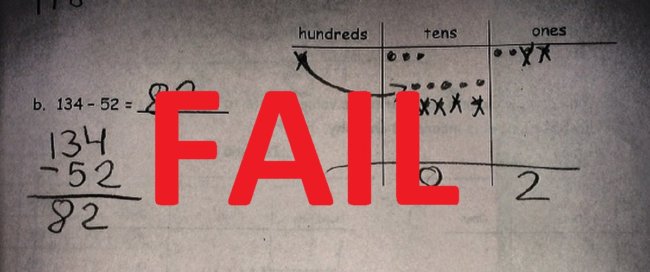I’ve been in the education business for 31 years and I’ve seen many a fad come and go, from Teacher-proof curricula to shared decision-making to Differentiation to Cooperative Learning, Curriculum Mapping, Goals 2000 and various reading programs that focus on inventive spelling, phonics, whole language and learning vocabulary in context. Many of my colleagues didn’t believe me when I said that our present testing fetish would also shuffle off the educational stage at some point. What caught me by surprise was just how quickly that would happen.
The focus on testing and corporate-style accountability began with the publication in 1983 of A Nation at Risk, a report that essentially regarded the American education system as having failed our students, our economy, and our values. It repudiated many of the reforms that liberals had foisted on the system in the 1960s and 70s and said that if we didn’t correct those flaws we would fall behind other countries whose schools were beginning to produce students who knew more math, science and analytical skills. Conservatives adopted the report as the clarion call for privatization, a back-to-basics curriculum that stressed factual recall, and of course, tests to measure not just students, but teachers, with the secondary goals of loosening the grip that the National Education Association and the American Federation of Teachers had on school policy and defeating Democrats who relied on union support.
And they almost succeeded. The testing movement – which reached its pinnacle last year and is now under more assault than what we are using to fight ISIS – is in rapid decline. Last year, 44 states gave the PARCC tests which measure how thoroughly students have learned the Common Core Curriculum Standards. This school year 7 states, including New Jersey, will be giving those tests. The rest will be giving a test adopted by their own Education Departments. Further, some states, most notably New York, won’t be using the tests to evaluate teachers. The retreat is notable.
Is the assault over? Not by a long shot, but it is weakening. Conservative groups are still trying to get states to funnel money to Charter Schools, which, on average, do no better than public schools. Many charters do better within certain geographic areas, but much of that has to do with state governments that are abandoning public schools that are in poor urban centers. The fight to limit collective bargaining for teachers and other public workers reached its height in 2013 and has since paused, although the damage done to teachers’ pay and benefits has been significant. And although New York is backing away from using tests to evaluate teachers, more states need to follow them for the good of education everywhere.
The bottom line is that teachers are doing a magnificent job with the dwindling resources and increased scrutiny that came with the rise of the know-nothing conservatives. Aligning teacher evaluation with student test scores only illustrated that the overwhelming majority of teachers were effective. Clearly, the know-nothing’s intent was to use the test scores to fire teachers they thought were failing our students. That hasn’t happened because their assumption was incorrect. They won’t admit it, but it’s true.
The next fight will now be on the state level as we return to local standards and local tests. In the past, most states created tests where 90% of the students scored in the proficient range. That’s just not statistically feasible. We do need national standards and we do need to measure how students are learning. The reaction to the Common Core and PARCC will not make this possible, and that’s to the country’s detriment.
Have no fear, though: If history is any guide, this reaction will only last a few years and something else will come along and replace it. Will it be better or will it be worse?
My answer? Yes.
For more, go to www.facebook.com/WhereDemocracyLives or Twitter @rigrundfest








